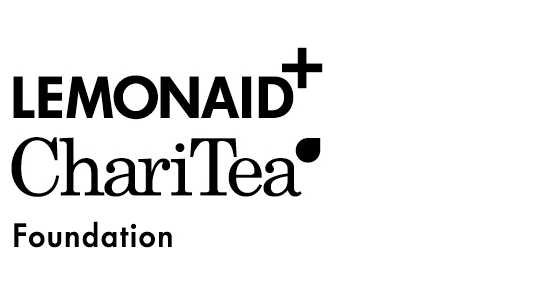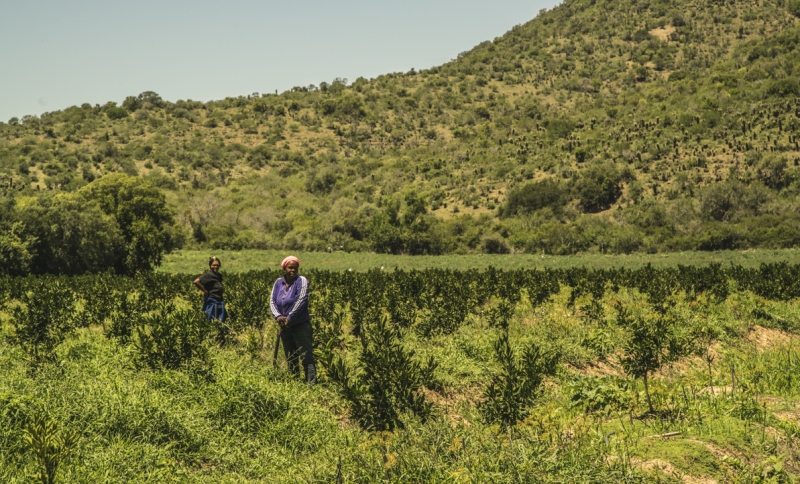Since the beginning of 2017 the Lemonaid & ChariTea Foundation supports the „Raymond Mhlaba Microcredit Fonds” (RMMF) in the city Alice, located in the Eastern Cape in South Africa. RMMF has the goal to vitalize the local economy and supports the establishment of local businesses and start-ups. Amongst others projects the agency founded the Nkonkobe Busness Support Center (NBSC) in order to comply with the demand of local businesses for guidance services. In the following project, which is supported by the Lemonaid & ChariTea Foundation, the NGO focuses on giving historically disadvantaged black entrepreneurs the possibility to accesses financial facilities. In the process of granting credits, they often experience discrimination and are classified as not credit-worthy. These people are offered start capital for their entrepreneurial activities through the establishment of a micro credit funds. The Foundation is supporting the installation of the micro credit funds:
The fund is planned and operated by the Non-Profit Company Nkonkobe Economic Development Agency (NEDA). It was established in the year 2002 by the Nkonkobe Local Municipality (now Raymond Mhlaba Local Municipality after merger with the neighbouring Nxuba Local Municipality on 3. August 2016). Its mandate is to support the growth of the local economy and, amongst others, to be a continuous one stop shop for local enterprises and start-ups by assisting them in business related matters. Hence the work done by NEDA is an integrated part of the service delivery of the municipality. In terms of its operation, NEDA has the support of major role players and stakeholders in the area; and to fulfil its role it cooperates with various institutions on a local, regional, provincial and national level. Within NEDA, the Nkonkobe Business Support Centre (NBSC) was established in February 2012. The establishment of this centre was in response to the demand and needs for small, medium and micro enterprises (SMMEs) to get business and entrepreneurial support services in the area. To date the centre has been funded by the local municipality. Initial grant funding was provided by the MTN Foundation. The following business support services are provided by the centre:
- growth and relocation of businesses,
- financing and funding,
- innovation and cooperation projects,
- managing crises,
- supporting the establishment of start-ups,
- launching strategic initiatives for business to participate in and
- training in business skills.

Sign in Alice to the Business Centre.
Apart from the general business support, NEDA runs local skills development, employment and agriculture projects. The area covered by the Raymond Mhlaba Local Municipality is predominantly rural with a population of 155,000 and a small economy that cannot absorb most of the +40% unemployed. The municipality encompasses the main towns of Adelaide, Alice, Balfour, Bedford, Fort Beaufort, Hogsback, Middledrift and Seymour along with many surrounding villages. To understand this remote and rural area, one has to have the historical background in mind: The municipality is situated in a former “homeland”, where the formerly as “black” or “coloured” discriminated people has been sent to during the Apartheid system. Up until now the area is characterised by this historical preconditions. Therefore also most small businesses are non-bankable and thus excluded from the usual access to capital markets. The idea is to locally fund local businesses, co-operatives and start-ups. The proximity between funder and borrower is one of its principles.
Unlike in the banking industry, the aim of the Raymond Mhlaba Microcredit Fund is not for profit, hence it aims are clearly focussed on social upliftment and local economic development. The target group of the fund will be small, medium and micro enterprises (SMME), start-ups and co-operatives (only the ones with a sustainable business approach) with comparatively limited need for external capital, who are excluded from usual accesses to capital markets (non-bankable businesses), regardless of the industry they are working in (unless their business is regarded unethical or illegal) and with their domicile in the Raymond Mhlaba Local Municipality. However, they would like to focus on sustainable business ideas, i.g. with recycling methods or within small-scale agriculture.

Meeting with NEDA in Alice. ©Noah Felk
RMMF will operate as a revolving fund that follows a long-term strategy. It is not for profit; which means that apart from 10% administration fee, all repayments will be reinvested into the fund. There will be no interest and RMMF will not give out cash, instead it will buy the assets needed for the recipient of the fund.
The other aim is to grow the fund over the years in order to give more and more businesses the opportunity to profit from local microcredit funding. All loans will be paired with services from NEDA’s already existing Nkonkobe Business Support Centre (NBSC). NBSC will operate the fund as an integrated instrument of its business support services. Business advice for borrowers will be mandatory before and after approval of the loan.
The criteria for the decision making consist of roughly one third business concept and two thirds personal suitability of the entrepreneurs. This reflects wide-spread experience in particular with small businesses; the entrepreneur is the most important success factor. Worldwide experience with microcredit funds shows that repayment rates are surprisingly high.
The borrower will be mentored through the already existing NBSC and, where applicable, through NEDA’s smallholder farmer programme. There will be at least monthly follow-up visits to all borrowers to assess their progress, to advise the entrepreneur and to remove barriers where necessary. Experience from other microcredit schemes (e.g. Grameen, MIQUA) shows that quite a number of businesses struggle to repay their loans at some stage. However, through constant mentoring and advice the default rate can be reduced considerably. On top each borrower will have to provide three guarantors. The idea behind the guarantors is to sustain pressure on the borrower to repay the loan. This allows to not require sureties from the borrowers and thus achieve a streamlined administration process.
The RMMF will draw on lessons learned from similar projects. These international examples show that successful micro lending can contribute to the local economy and reduce unemployment as well as poverty.

Meeting with the municipal manager Luzanda Menze and Agnes Leder from the Lemonaid & ChariTea Foundation. ©Noah Felk



